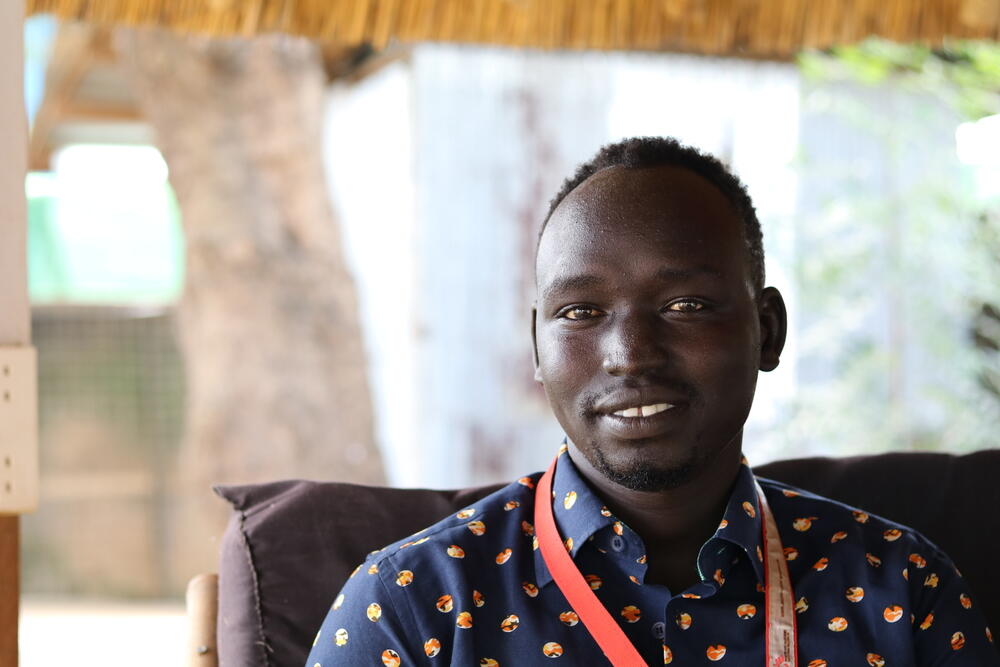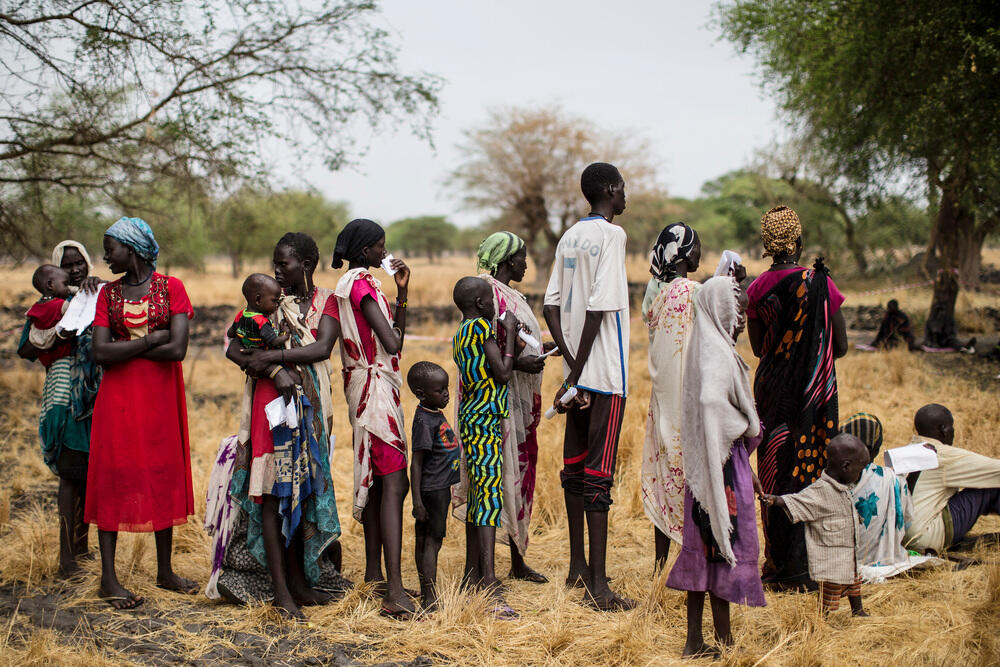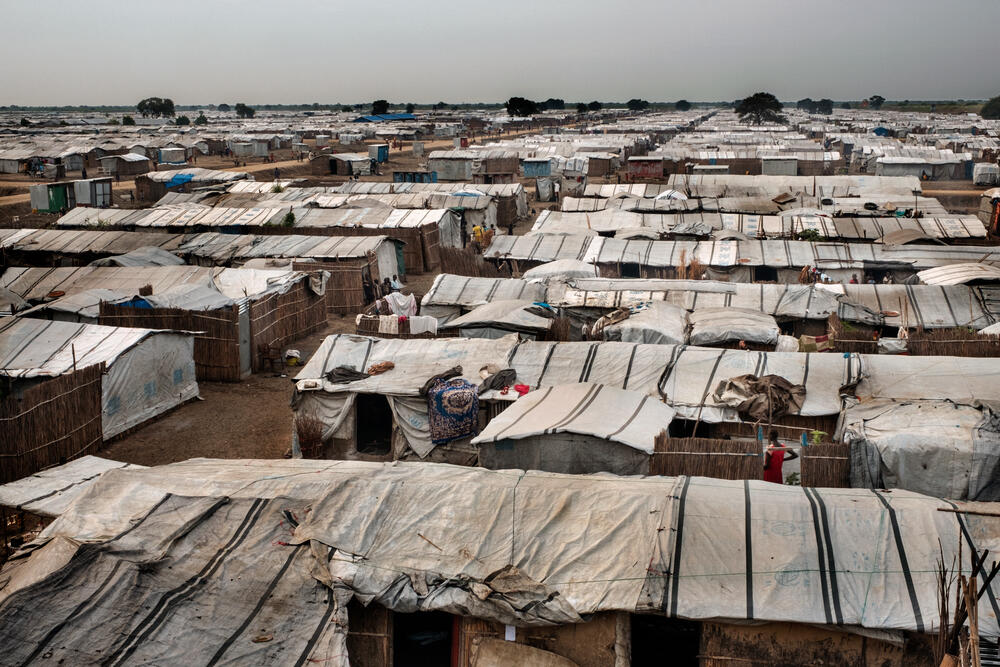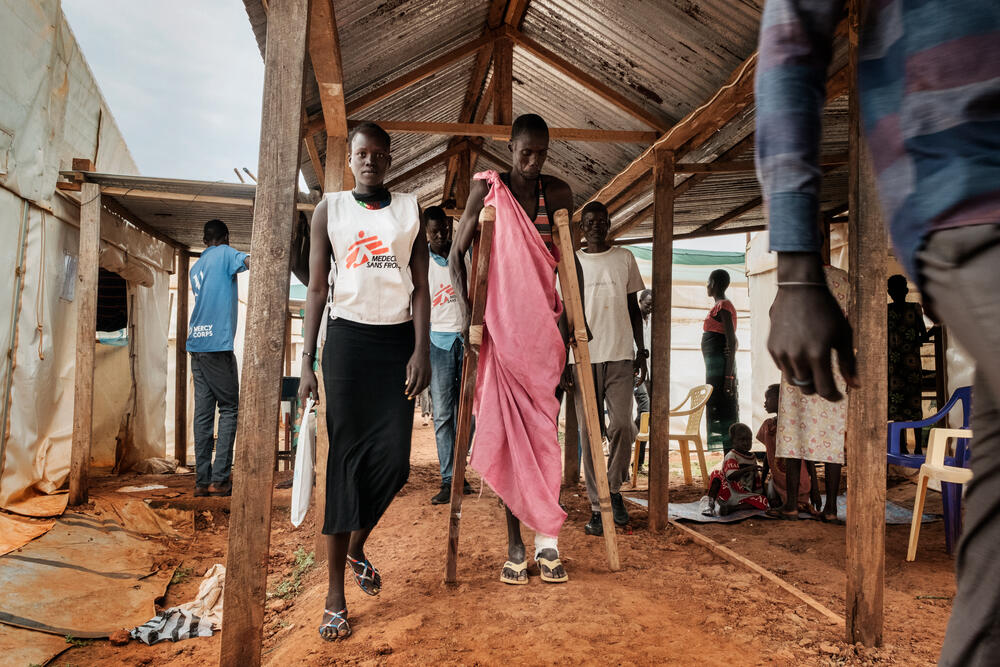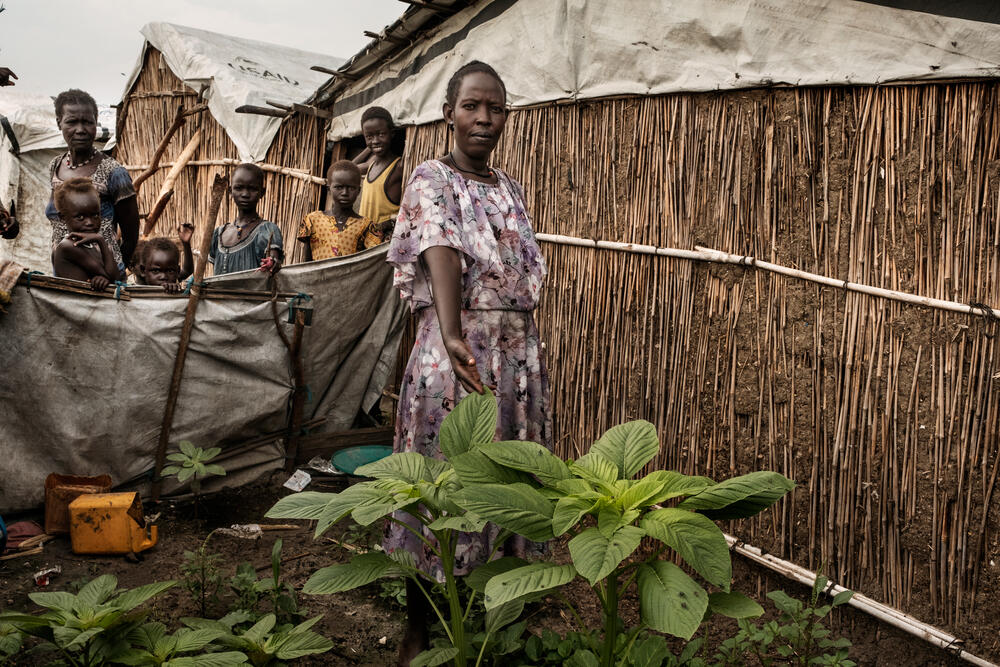Not giving up: How I survived war and displacement in South Sudan
Gatluak Sufar works for MSF in Bentiu, a displaced persons camp in South Sudan. He shares his story…
I was born in Koch County, Unity State, at my maternal grandparents’ place.
After nursery school, my friends and I would play under the big trees. Our chores were limited to herding the calves at the riverside, going to church to practice songs and playing at the nearby playground.
When my father married a second wife I moved in with them in Leer, a town in the same state. My elder brother lived with my mother in Jaloh, 30 minutes’ walk away. They had cattle and goats. Some weekends, my father would take me on his bicycle to visit them.
"The borders of our state were the flashpoint. The government closed down oil production while fighter jets and infantry battled for control."
Things were going well until tragedy hit and war finally reached Leer. There was a famous slogan about the soldiers: “Gor chak, gor kuan ka gor nyam te chang”, loosely meaning, “I want the milk, the food and the girl from that home”.
We lost everything we couldn’t take with us, including my father’s giant radio. Leer was burnt down and looted. That was the first displacement I faced. At the age of five.
After the first displacement
We moved to Jaloh, but there was a military base nearby, and every day we heard the rattle of small arms fire. The time came to move again. It took us over six days to reach Ganyliel, our second displacement.
Then in 2001, we were displaced again, to a cattle camp in the forest. I remember life there, cattle herding, bee hunting and fishing.
In April that same year, my mother, sister and I moved to Kakuma refugee camp in Kenya. My father had heard there was more stability, and some guarantee of an education. It would be 14 years before I returned.
Conflict with Sudan
In 2011 I went back to Leer to spend Christmas with the family. The carpenter’s workshop had closed, but it felt like not much had changed. Children played in the playground. Life in Leer now seemed completely stable.
Two months later I was back in Kenya to start my college education, and shortly after, the conflict with Sudan flared up.
The borders of our state were the flashpoint. The government closed down oil production while fighter jets and infantry battled for control.
Austerity measures meant that I did not receive school fees that year. I spent the year without being able to study. I felt let down. I gave up on people and stopped expecting help from anyone.
When I heard a training centre back in Kakuma camp was enrolling, I applied for a year-long course in electrical installation. I got in. I graduated in December 2013, and sold my mountain bike that same day to pay for the journey home. I arrived in Juba on Friday night.
Civil war
On Sunday evening, the 2013 civil war began. I felt like life was pushing down on me from all directions.
Soldiers were deployed on all roads. Any indicator that you were from the Nuer ethnic group and they would execute you. In some neighbourhoods, a door-to-door hunt for Nuer people was in full swing. After five days in hiding, we moved to the UN compound in Juba.
Life in the camp was like a crowded school dormitory, at no point can there be silence. My friends and I got lucky and found jobs. After work I drained my emotions in music and movies. I just clung on to life and resisted any emotions that wanted to make me give up on myself.
Alone with my problems
It took me a year to save enough to enroll on a diploma in electrical and electronics engineering. When I completed the course, 22 months later, I did not want to come back to my home state, it carried too many negative emotions.

Help us prepare for the next emergency
But I couldn’t find a job at the camp in Juba. By February I was broke and my girlfriend was pregnant. So, we moved to Bentiu, the biggest town in Unity State, where there was also a UN camp for the protection of civilians. Our luggage was lost on the journey, and none of my relatives were there to help. Again, I was alone with my problems.
She came with luck
A week later I got a job as an electrician and my daughter was born. She came with luck, as I reflect. From there I had another reason not to give up on myself.
I worked at a British Military base in Bentiu for two years before a job at MSF showed up. My MSF job became a new challenge, I embraced it and have enjoyed it ever since.
MSF has a large hospital here, offering free medical care, including maternity services and emergency surgery. I’m the ICT supervisor, working to make sure that all the systems the team needs are running smoothly.
My life now
As well as working for MSF, I’ve opened a workshop and a vocational training centre here in Bentiu. I teach in the evenings after work. Right now, I have seven students. I charge SSP 5000 (£8.60) a month: not enough to turn a profit.
I was thinking of offering courses for free, but it’s too much to buy the generator fuel from my own pocket. I don’t know why I don’t charge more, maybe it’s because I received the training in Katukama for free.
The future
I hope to get a breakthrough someday. Alongside working for MSF, I want to open the workshop as a research centre for coding, and a place for hobbyists to make meaningful projects.
A place where demobilised ex-soldiers can find solace and a road to civilian life, and youths who did not have a chance at education can find some skills to help them have a decent life. But all those things will have to come in the future.
Now I finally feel at ease to go back to Leer. We’ve agreed a date. I’m going to take my two kids and my wife. I will meet my father for the first time in eight years.
MSF in South Sudan
In July 2011, South Sudan became the world’s newest country after gaining independence from Sudan. The peace deal that led to the split also ended Africa’s longest-running civil war.
But in December 2013, South Sudan was plunged back into chaos as civil war erupted amid a power struggle between the president and his deputy.
The conflict has forced millions of people from their homes and left many without access to basic necessities, such as food, water and healthcare. Médecins Sans Frontières / Doctors Without Borders (MSF) works in hospitals and clinics throughout South Sudan, where we run some of our biggest programmes worldwide.
As well as providing basic and specialised healthcare, our teams respond to emergencies and disease outbreaks affecting isolated communities, internally displaced people and refugees from Sudan.
